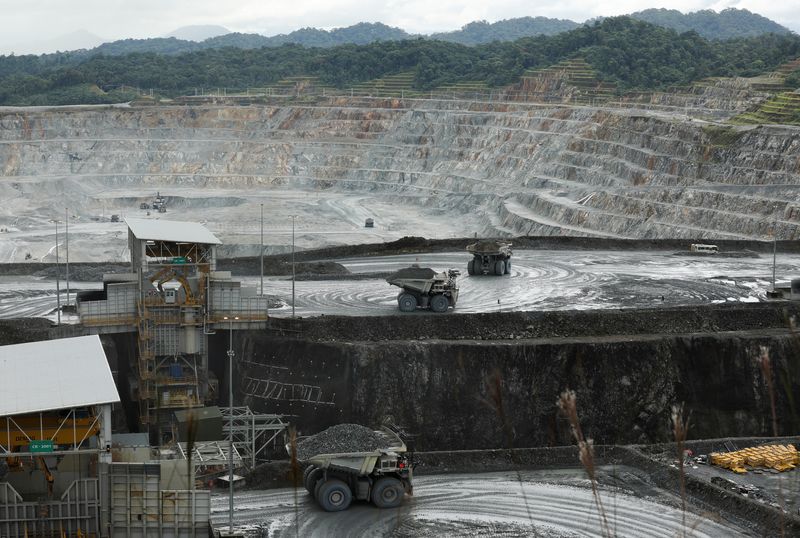By Valentine Hilaire
MEXICO CITY (Reuters) -Canada-based miner First Quantum Minerals (OTC:FQVLF) said on Friday it is going through "all available legal means" after the Panamanian government ordered it to pause operations at its flagship copper mine over a payments dispute.
The Cobre Panama mine is considered the largest private investment in the Central American country, accounting for roughly 3.5% of its gross domestic product.
Panama's government had on Thursday ordered First Quantum (NASDAQ:QMCO) to pause operations after it missed a deadline to finalize a deal that would have increased annual payments to the government to at least $375 million.
Ebrahim Asvat, a lawyer negotiating on behalf of the Panamanian government, told Reuters in a phone interview that First Quantum's team had, at the last minute, sent them an "entirely different contract" in which payments did not add up to the previously agreed-upon sum.
A spokesman for First Quantum said taxes and royalties paid to the government would provide the $375 million per year.
"We are open to continue talking, but it depends on (First Quantum)," said Asvat. "What the state is not going to allow is for the mine to become a colonial enclave, with First Quantum thinking that they are the owners of that piece of land."
First Quantum reported revenue from Cobre Panama of $2.29 billion in the first nine months of this year. It shares the joint venture with the Korea Panama Mining Corporation (KPMC), which holds a 20% stake.
Mainly focused on copper, First Quantum also mines nickel, zinc and cobalt in projects across South America, Africa, Europe and Australia.
Earlier on Friday, First Quantum said in a statement it was disappointed by the "unnecessary actions" taken by the government and that the two parties "came very close to an agreement."
Asvat said operations were still ongoing as the suspension order had yet to take effect.
Shares of First Quantum have lost more than 15% of their value since closing on Wednesday. Analysts at Jefferies cut their target price due to "the risk of a more catastrophic outcome."

Jefferies said the most likely outcome, however, would be for negotiations to be extended and the two sides to agree on new terms.
The Panamanian government hired financial advisers to explore alternatives with other firms in recent months, according to a source familiar with the matter.